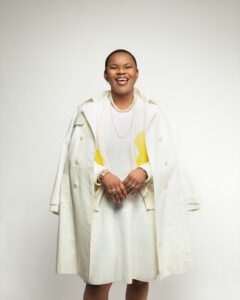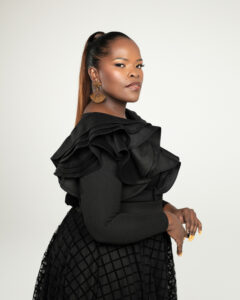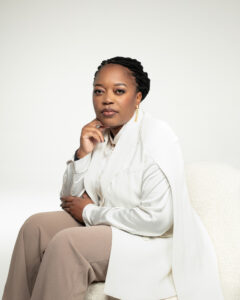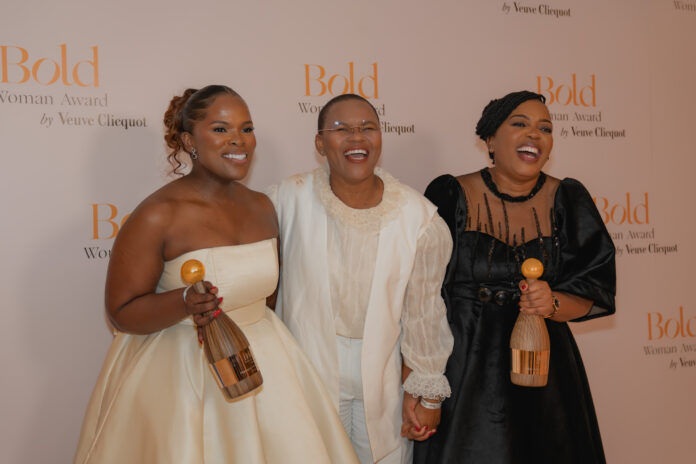As part of Veuve Clicquot’s ongoing commitment to supporting and celebrating women in business, the Maison has created the Bold International Barometer in 2019 to shed light on and provide meaningful insights into the evolution of female entrepreneurship. Now in its 3rd year, the Barometer continues to lead the conversation around women and their presence in business, offering a deep dive into the data on female entrepreneurship in South Africa.
In 2023, over 49,000 women and men from 25 countries were surveyed. Encouragingly, South Africa’s data results speak to a robust female-led industry. The survey, which was self-administered online, asked respondents to give their views on several statements relating to the nuances of being a business owner and entrepreneur. Taking a global look first, the survey suggests that the rate of female entrepreneurship has slowed and is even diminishing in some countries. In some cases, this is due to both external—such as ongoing geopolitical crises—and internal factors, like striking a fair work-life balance.

This, however, is not the case in South Africa, where the data suggests a dynamic environment for women, fueled by a contagious desire among them to become entrepreneurs. Amanda Dambuza, Founder and CEO of Uyandiswa and the 2017 winner of the International Businesswoman Award by Veuve Clicquot says, “I am forever impressed by the spirit of South African female entrepreneurs. Despite the many challenges they face, they get up and back themselves to ‘bring home the bacon’. Next to Nigeria, we stand shoulders above the rest with high numbers of females identifying as entrepreneurs.”
In short, female entrepreneurship in South Africa is flourishing. South Africa stood out as one of the global leaders in female entrepreneurship where, currently, 61% of women self-identify as entrepreneurs (primarily aged between 20 to 29). According to the survey, they tend to be better educated and have higher incomes than their male counterparts. Yet they remain concentrated in lower-income sectors like beauty, food, retail, and fashion, while men dominate tech. However, in industries such as transportation, finance, and real estate, there is relatively equal representation, suggesting there could be potential for more women to succeed in these fields, should they want to diversify.
What’s Motivating Women to Become Entrepreneurs?
According to the data, 39% of female respondents said ‘that being your own boss’ was the biggest driver for becoming an entrepreneur. Despite this, most women and half of men agree that it is more difficult for women to become entrepreneurs. Further to this, most women concur that securing business funding is easier for men, a view that remains consistent with previous years. “[This] finding resonates deeply with me,” says Morongwe Mokone, the 2024 Bold Woman Award by Veuve Clicquot winner and Co-Founder of Mo’s Crib. “It highlights the persistent gender and structural barriers that women face.” She continues by commenting on the need for strong role models among respondents, with most women and men agreeing on their importance. “[This] emphasises the need for female visibility and representation,” Morongwe adds. 72% of aspiring South African female entrepreneurs can name a successful woman they admire, surpassing the global average. Refilwe Sebothoma, 2024 Bold Future Award winner and Founder of Hakem Energies adds, “It remains our responsibility to keep forging a way for those who come after us. In this way, success doesn’t become a too far-fetched idea but a reality which can be attained by fellow women entrepreneurs.”

However, as glowing as some of these statistics may be, women still face challenges that, in many cases, their male counterparts don’t experience. In addition to difficulties accessing funding, women also must navigate balancing work and family, with 63% of women and 56% of men agreeing this is harder for female entrepreneurs. Further to that, since the conversation about working women can’t happen without mentioning their families, half of the female respondents believe that female entrepreneurship disrupts family life, compared to only 25% who feel the same about male entrepreneurship. “Women must know without a shadow of a doubt that despite cultural and family pressures, they deserve to pursue their dreams of entrepreneurship,” says Amanda.
Further to this, two-thirds of women say that managing entrepreneurship with family life is harder for women, and about half say that working full-time affects family life. This indicates that while entrepreneurship is thriving amongst women in South Africa, there is still much work to be done to support women getting into business, as well as helping them stay there. “It is encouraging to see the growth and resilience of women in this field despite economic challenges,” says Morongwe. “However, it is essential to focus on breaking down the barriers that limit women’s participation in higher-revenue sectors and ensure equal access to funding opportunities. By addressing these issues and promoting diverse role models, we can further empower women and drive sustainable economic growth.”

“Authenticity, resilience, and just being ourselves is very important. As women, we need to keep making a difference, no matter how insignificant we think it is because when that impact is replicated, women will change the world,” concludes Refilwe.

